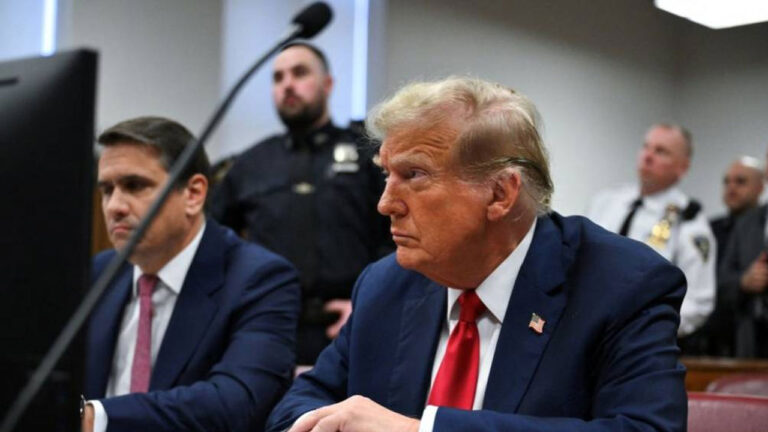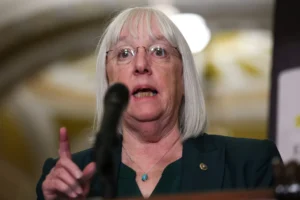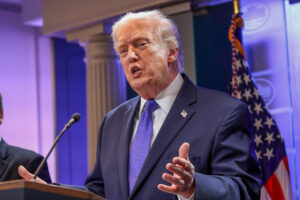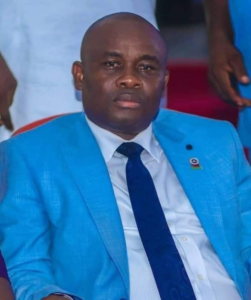The selection process for potential jurors in Donald Trump’s historic criminal trial in New York is underway, with dozens already ruled out due to concerns about impartiality.
Mr. Trump faces charges of falsifying business records to conceal a hush-money payment to adult film star Stormy Daniels just before the 2016 election, which he won.
As proceedings began on Monday, 60 out of 96 potential jurors indicated that they could not maintain impartiality.
Jury selection will continue on Tuesday and is expected to last up to two weeks as both the prosecution and defense aim to select a fair and unbiased jury for the trial.
The dismissals on the first day underscore the difficulty of assembling a panel of 12 impartial jurors for a case involving a high-profile sex scandal tied to a former president who is also a presidential candidate.
“I just couldn’t do it,” one prospective juror remarked as she exited the courtroom.
The Manhattan District Attorney’s Office alleges that Mr. Trump instructed his former attorney, Michael Cohen, to pay Ms. Daniels $130,000 (£104,000) to secure her silence about an alleged sexual encounter, which the former president denies occurred.
Prosecutors assert that this payment was made to “unlawfully influence” the 2016 election. Mr. Trump maintains his innocence.
Jury selection commenced in the afternoon, with the judge initially excusing jurors who acknowledged their inability to be impartial, narrowing the pool to approximately 34 individuals.
The remaining prospective jurors faced a rigorous session with a 42-question jury questionnaire, covering topics such as their news consumption patterns and any interactions with Donald Trump’s rallies or books.
Following this, eighteen individuals were selected at random to occupy the jury box and respond to the questionnaire one by one.
A man from Midtown Manhattan disclosed that he reads the Wall Street Journal regularly, while another from the Upper West Side mentioned his habit of listening to radio, particularly NPR, during his shower. He clarified this detail during questioning.
Neither individual was immediately dismissed based on their responses.
Another woman was directly asked: “Do you hold any strong opinions or firmly held beliefs about former president Donald Trump, or his current candidacy for president, that could impede your ability to serve as a fair and impartial juror?”
She responded with a simple “yes” and was dismissed from the jury pool. Initially, Mr. Trump’s legal team objected to her dismissal without providing further reasons.
All jurors will maintain anonymity due to the significant publicity surrounding the case, although both Mr. Trump’s legal team and the prosecutors will be aware of their identities.
Quietness in the courtroom prevailed throughout the day. The accused remained silent, conversing with his lawyers in hushed tones while maintaining a serious demeanor.
Later, Mr. Trump’s team refuted claims that the former president had struggled to stay awake or even fallen asleep during the proceedings. They dismissed such reports as “100% fake news” from journalists who were not present in the courtroom.
During Monday morning, Mr. Trump only uttered three words to Justice Juan Merchan of New York—each “yes”—when asked about courtroom conduct.



























